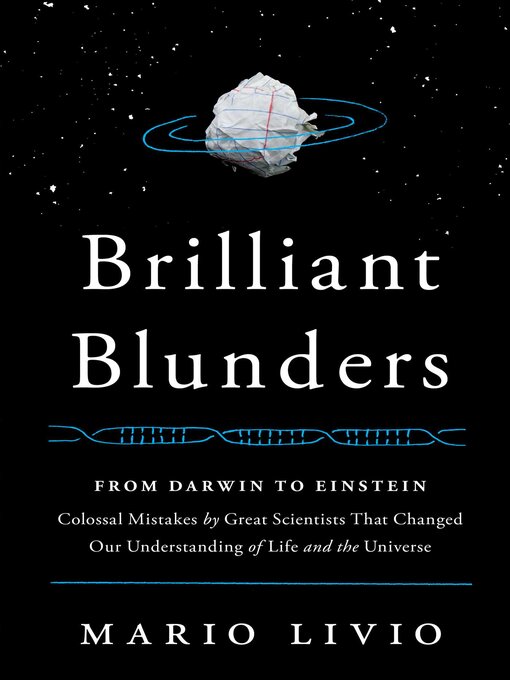- English
- Español
- Français (Canada)
- 中文(简体)
- Italiano
- Deutsch
Charles Darwin, William Thomson (Lord Kelvin), Linus Pauling, Fred Hoyle, and Albert Einstein all made groundbreaking contributions to their fields—but each also stumbled badly. Darwin's theory of natural selection shouldn't have worked, according to the prevailing beliefs of his time. Lord Kelvin gravely miscalculated the age of the earth. Linus Pauling, the world's premier chemist, constructed an erroneous model for DNA in his haste to beat the competition to publication. Astrophysicist Fred Hoyle dismissed the idea of a "Big Bang" origin to the universe (ironically, the caustic name he gave to this event endured long after his erroneous objections were disproven). And Albert Einstein speculated incorrectly about the forces of the universe—and that speculation opened the door to brilliant conceptual leaps. As Mario Livio luminously explains in this "thoughtful meditation on the course of science itself" (The New York Times Book Review), these five scientists expanded our knowledge of life on earth, the evolution of the earth, and the evolution of the universe, despite and because of their errors.
"Thoughtful, well-researched, and beautifully written" (The Washington Post), Brilliant Blunders is a wonderfully insightful examination of the psychology of five fascinating scientists—and the mistakes as well as the achievements that made them famous.


